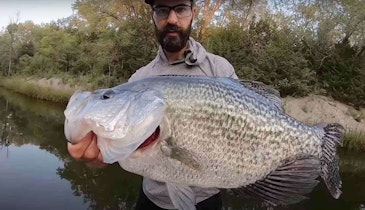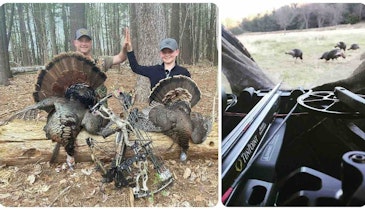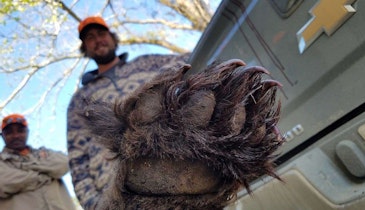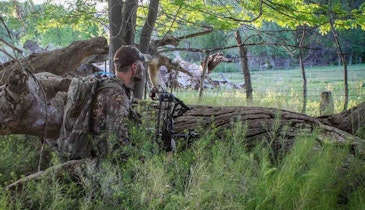The recent controversy and monstrous public outcry over the killing of a collared lion nicknamed “Cecil” in Zimbabwe has created a living Hell for the Minnesota dentist who did the killing and his two Zimbabwean professional hunters, all of whom have had their lives changed forever before the facts of the matter were ever known.
Whether the hunt was legal or illegal remains to be seen, but on August 10 the Zimbabwean government lifted restrictions on hunting lions, leopards and elephants across the majority of that nation enacted just 8 days prior in response to the Cecil episode. More important to you and me, however, is the worldwide furor that erupted over this tragic event. It brought out the usual assortment of fruits and nuts screaming for the end of not just so-called “trophy” hunting but the end of all hunting, and worse. For example, one knucklehead went so far as to contact the Dallas Safari Club and threaten to take an AK47 and grenade to “wipe the lot of you out.”
This incident has shined the light on the very large anti-hunting community, and the lengths they will go to to try and end all hunting. And their power is greater than you might think.
It was these groups that sparked many airlines worldwide to ban the shipment of all lion; leopard; elephant; rhinoceros and buffalo trophies from their cargo holds, regardless of whether or not they had been taken legally and the hunters had the required permits allowing both the hunt and the export of the animals. The biggest names include Delta, American, and United, but in recent months the list — which is amoebic in nature, changing often — includes the following: Air Canada; Air France; British Airways; Brussels Airlines; Emirates Airline; Etihad Airways; Iberia, KLM; Lufthansa; Qantas; Qatar Airways; Singapore Airlines and Virgin Atlantic Airways.
This movement in the airline industry began in no small part thanks to kooks like Cotati, Californian Chris Green, who is the Director of Legal Affairs for the Animal Legal Defense Fund. Green took to Twitter earlier this year and, as of this writing, has gotten just shy of 400,000 signatures on a petition asking the airlines to end the transport of hunting trophies. In terms of actual revenue, the loss of this money is miniscule for the airlines, since they ship relatively little of this type of cargo.
But when promoted alongside the Cecil affair, it has been a huge PR gain for them.
In contrast, shipping giant UPS stated on August 4 that the company will continue to ship animals that have been properly prepared. UPS public relations director Susan Rosenberg told the Washington Post that the global shipping giant follows U.S. and international laws — not public opinion — in determining what it will and won't ship.
“There are many items shipped in international commerce that may spark controversy,” said Rosenberg. “The views on what is appropriate for shipment are as varied as the audiences that hold these views.”
That position has made UPS the “number-one target” of Humane Society International, according to Teresa Telecky, director of the wildlife department at HIS — the international arm of the Humane Society of the United States.
“We urge UPS to join the growing list of airlines that prohibit the transport of trophies,” she told The Dodo.
FedEx spokesman Jim McCluskey told The Dodo that FedEx's shipping policy allows “taxidermy-finished specimens if they are legally obtained and meet our shipping guidelines,” and that “our priority is to ensure we abide by laws and regulations for all shipments.”
While ALDF is a relatively small animal rights group, it’s the Humane Society of the United States and, to a lesser extent, People for the Ethical Treatment of Animals that are the bigger threats.
Wayne Pacelle, president of HSUS, recently told NBC News that Delta “has set a great example … no airline should provide a get-away vehicle for the theft of Africa's wildlife by these killers.”
These anti-hunting groups have lots of money and find it relatively simply to mount loud anti-hunting campaigns.
The moral of the story is a simple one. In modern society, hunting is a privilege, not a right, and there is a huge contingent of people who don’t understand it, don’t know anything about modern conservation or the fact that today, as it has always been, it is the hunter who pays the bill for conservation of both habitat and wildlife.
They have no idea that the Federal Aid in Wildlife Restoration Act (more commonly known as the Pittman-Robertson Act), established by Congress in 1937 at the request of the firearms and ammunition industry and sportsmen, has collected and distributed over $8 billion — that’s billion, with a “b” — from manufacturers and distributed that money to the states for conservation of wildlife habitat.
In essence, the industry asked the government to place an excise tax of 11 percent of the wholesale price of long guns and 10 percent of the wholesale price for handguns solely for this purpose. Instead of squealing, hunters and shooters applauded the idea. They also don’t know anything about real animal rights’ groups like the Rocky Mountain Elk Foundation; Mule Deer Foundation; Safari Club International; Dallas Safari Club; Ducks Unlimited and so many others, made up primarily of hunters who donate untold amounts of time and money for conservation work around the world.
Never forget that groups like PETA and HSUS will say and do anything to fill their coffers by exploiting any reason given to them by poor behavior by hunters. In today’s world of instant communication, social media, and the worldwide web, where cell phones with cameras are everywhere and anybody can be a blogger, never forget that one poor decision by one hunter anywhere — even as far away as Africa — can be broadcast to millions of people in an instant.
Today we’re all the face of hunting. If we don’t want to lose the privilege, we best never forget that.
Oh, and how do real Africans feel about Cecil’s killing? Goodwell Nzou, a doctoral student in molecular and cellular biosciences at Wake Forest University, wrote an Op-Ed in the New York Times on August 4 entitled, “In Zimbabwe, We Don’t Cry For Lions” that sums it up nicely.
Let me know what you think by sending me an email at brobb@grandviewmedia.com.






